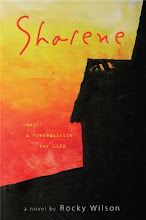Walt Whitman Was the Poet We Know, the Man We Don’t
Walt Whitman (1819-1892) is remembered as being one of, if not the finest all-time American poet. Still, Walt Whitman was the epitome of a struggling artist who found his personal niche, of all places, volunteering for thousands and thousands of Civil War casualties confined to hospitals.
Whitman’s masterpiece, Leaves Of Grass, initially published in 1855 with 12 untitled poems, grew during each of seven additional printings, only concluding when the final draft was released in 1891, one year before his death.
Unlike contemporaries Keats, Byron, Wordsworth, Coleridge, and Bryant who began writing at earlier ages, Whitman’s career as a poet began at age 36. He quit school at age 11, then became a journeyman printer, schoolteacher, newspaper publisher, and writer of fiction before writing poetry.
Facts, dates, and comments about Walt Whitman include:
* Born May 31, 1819, Long Island, New York
* 1830 Quits school, becomes voracious reader of Sir Walter Scott, James Fenimore Cooper, and enjoys Shakespearean plays
* 1833 Other eight members of family move away … Whitman stays in New York, works in print shop
* 1835-1840 Works as schoolteacher, at times teaching classes of 80 students ages five to 15 … hates the job
* 1838 Unsuccessful venture to launch newspaper
* 1840-1845 Freelance newspaper, magazine writer … novel ‘Franklin Evans; or The Inebriate’ sells 20,000 copies, more than any other of his works during Whitman’s lifetime
* 1846 Makes three-month trip to New Orleans, sees slave auctions
* 1855 Self publishes 795 copies of Leaves of Grass … poor sales … resounding endorsement by Emerson
* 1856 Adds 20 new poems, names all 32 in second release of Leaves of Grass … sales worse than first edition
* About 1859 A former proponent of temperance, Whitman begins frequenting a popular bar attended by artists and joins “Fred Gray Association,” a men’s homosexual group
* 1861 Friendly Boston publishers of latest Leaves of Grass go bankrupt, sell printing plates to another publisher who floods market with pirated copies … Civil War begins
* 1863-1865 Too old to enlist, now living in Washington D.C., Whitman, seen by some as Santa Claus and others as a father figure, is estimated to have nursed and visited tens of thousands of wounded and sick soldiers … many future poems, including his Drum Taps collection (1865) based on stories told by wounded soldiers
* 1865 Civil War ends, President Lincoln assassinated … Whitman writes “O Captain! My Captain!,” tribute to Lincoln
* 1873 Suffers stroke, partial paralysis, continues writing poetry
* Late 1870s Becomes traveling lecturer on Lincoln, Civil War
* 1882 Leaves of Grass banned from Boston because of sexual content
* March 26, 1892 Dies of tuberculosis
Walt Whitman was the great, innovative poet we remember, a chronicler of early Americana. Oscar Wilde, a friend, poet, and playwright, paid high tribute to Whitman when he said there was no one in America he more loved and honored.

Custom Search
To find what you are looking for on Effectual History.
Saturday, June 20, 2009
Walt Whitman Was the Poet We Know, the Man We Didn't
Labels:
Walt Whitman was the
Subscribe to:
Post Comments (Atom)





No comments:
Post a Comment